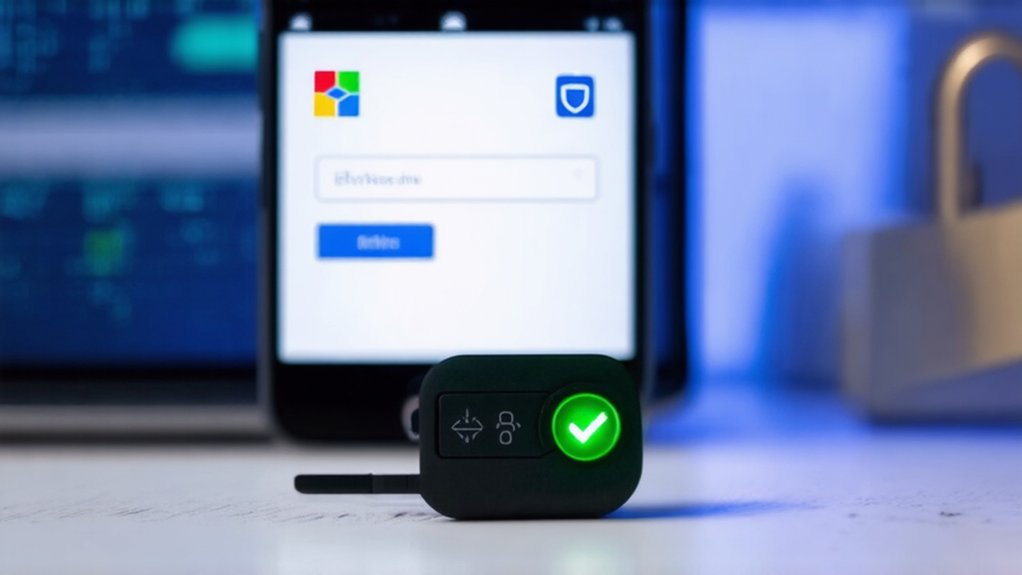Two-factor authentication, that trusty sidekick to your password, demands two forms of ID before letting you in. This extra layer blocks most automated attacks, as Microsoft’s 2019 research shows it stops 99.9 percent of them. Google backs this up, claiming SMS-based verification halts 100 percent of bot attacks and a hefty chunk of phishing ones. Additionally, two-factor authentication meets regulatory standards in industries like finance and healthcare, ensuring businesses remain compliant and protected.
Yet, it’s not invincible. Determined hackers can slip through cracks, turning 2FA into a flawed fortress. Social engineering is a sneaky villain here. Attackers trick users into handing over codes via phishing scams—think fake emails that look legit. Man-in-the-middle attacks intercept everything, stealing credentials on bogus login pages. Ouch.
Even 2FA isn’t foolproof—hackers slip through with social engineering and man-in-the-middle tricks. Ouch!
SIM swapping lets crooks hijack phone numbers, snagging those SMS codes like thieves in the night. And don’t forget session hijacking, where attackers grab cookies to bypass the whole setup. It’s messy, really.
SMS-based 2FA? Weak sauce. Messages aren’t encrypted, making them easy pickings for interception. Plus, SIM swaps and network delays turn it into a joke. Malware on your phone could snatch codes before you blink. Even the SS7 protocol has holes, though that’s fading. Sarcastic applause for that.
But hey, stronger options exist. Authenticator apps generate codes offline, no network needed—way safer. Hardware keys are tough cookies, requiring physical possession for proof. Biometrics use your face or fingerprint, cutting phishing risks. Push notifications let you approve logins with a tap. FIDO2 methods rely on keys, ditching shared secrets entirely. These make 2FA a real beast.
Implementing it right matters. Enable 2FA everywhere, no exceptions. Ditch SMS for apps or keys. Educate users on threats, like spotting phishing. Pair it with strong passwords. To enhance security, tools like password managers can generate and securely store unique passwords for better protection. It’s straightforward, yet so often ignored. In a world of hacks, this is your line of defense—flimsy or fortified, your call.




